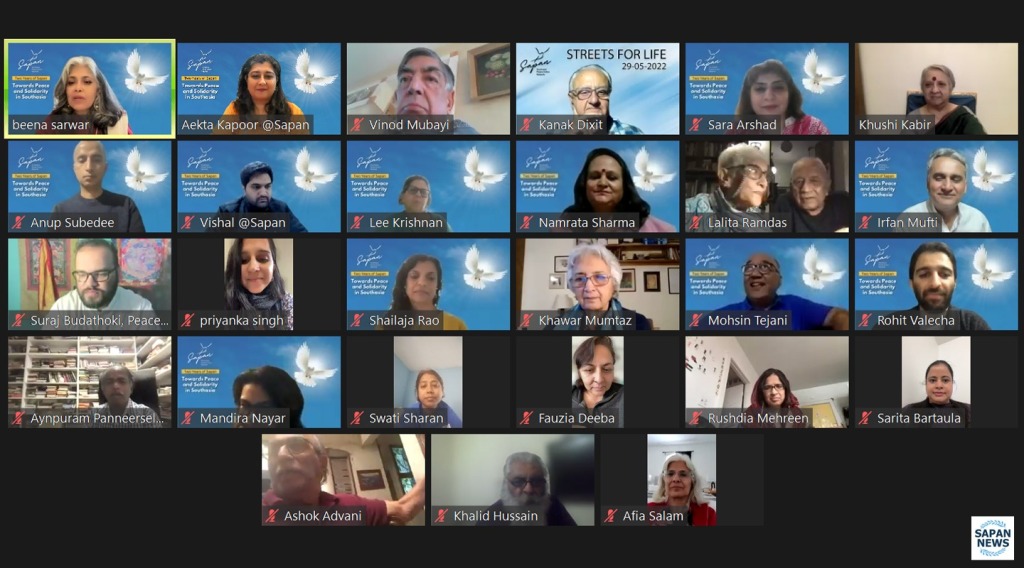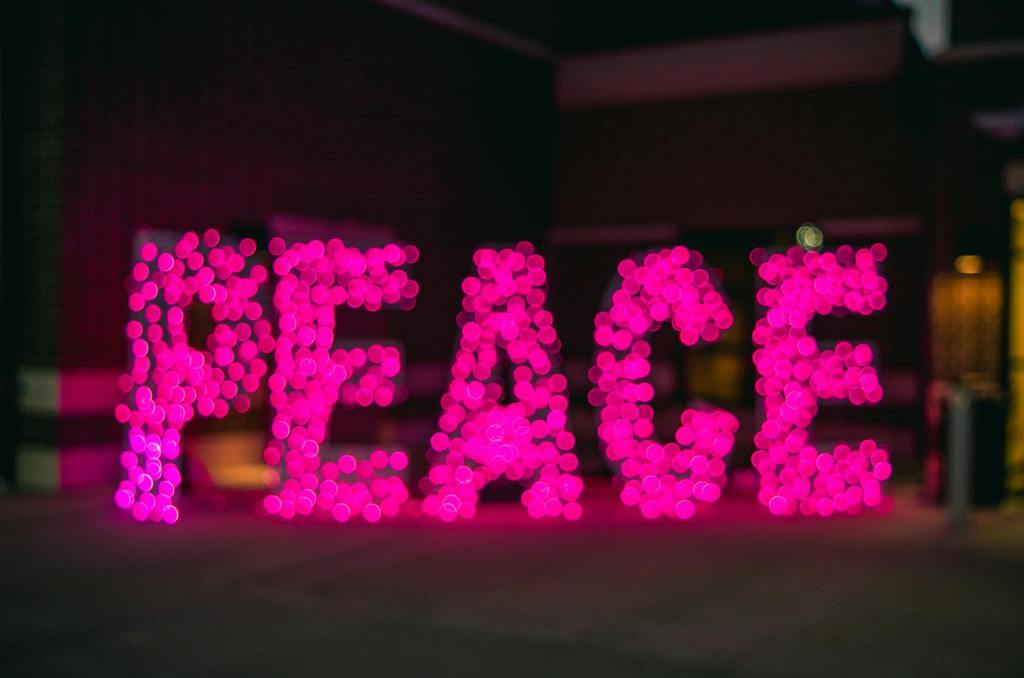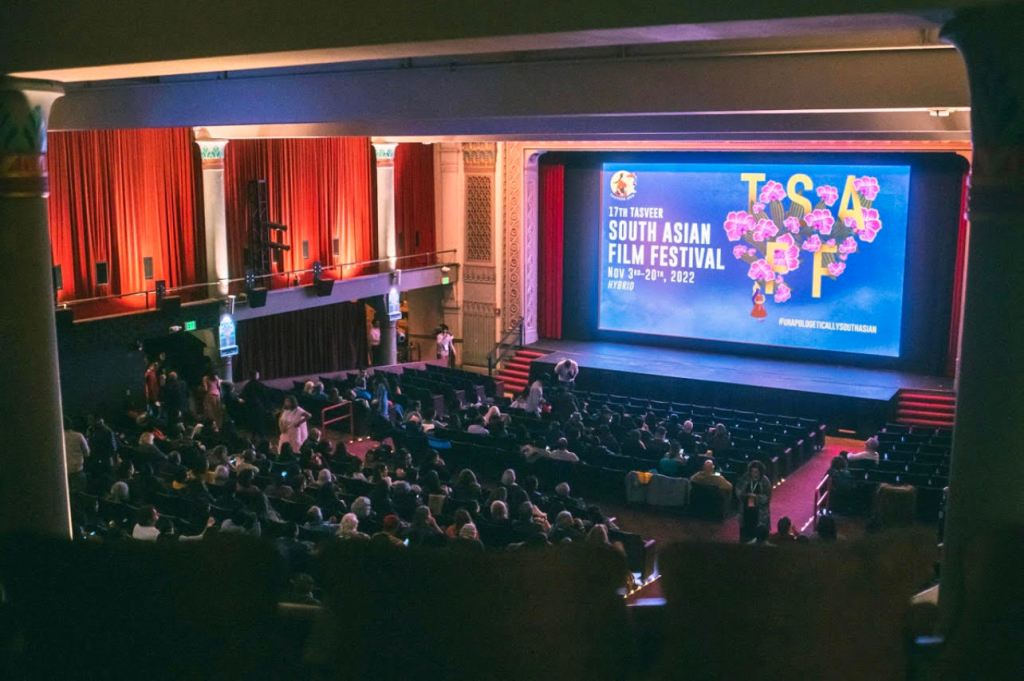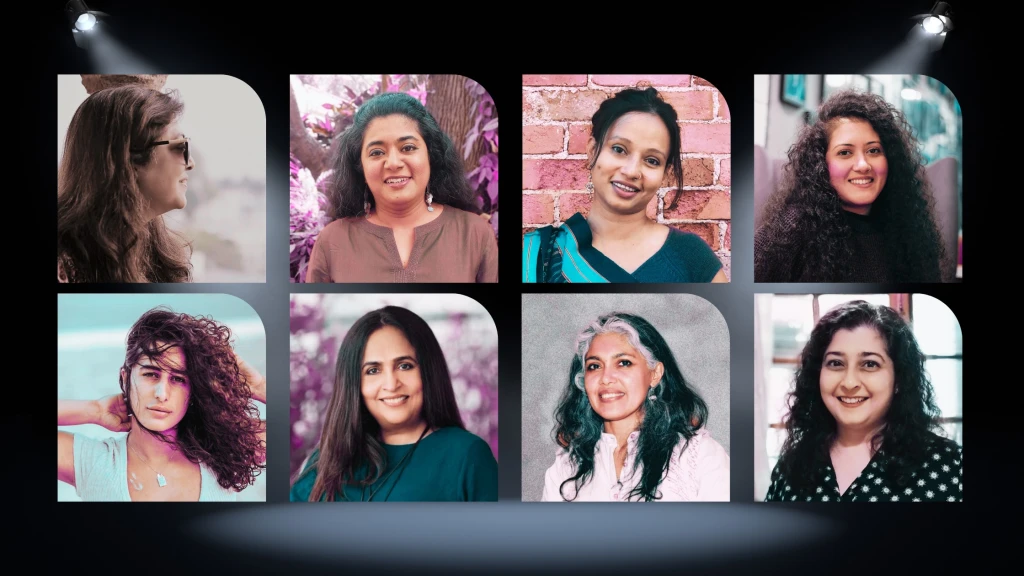By Sapan News
“We look at us as one South Asia irrespective of each country’s own politics,” said Dhaka-based activist Khushi Kabir, introducing the two-year anniversary event of the Southasia Peace Action Network (Sapan) recently.
Asserting her passionate belief in a regional entity “based on common and mutual respect, trust and support of all nations in this region irrespective of its size, political voice or any other thing,” she noted the significance of the day for her country, Bangladesh, which on 26 March 1971 had declared independence.
Coordinator of the South Asian feminist network Sangat started by the beloved late feminist Kamla Bhasin, Kabir also noted the importance of March as ‘women’s month’.
Noted journalists, peace activists and community leaders from across South Asia and the diaspora participated in the event, upholding the spirit of the Sapan Founding Charter that calls for soft borders and ease of trade and travel in the region, allowing people to meet and “learn to respect and love each other and work together”.
“This is the only way that South Asia can survive,” remarked Khushi Kabir.
The agenda included reviewing Sapan’s achievements, honouring Canadian journalist Lyse Doucet for her humanitarian reporting, announcing the winners of a music competition, and passing a Resolution to revive the South Asian Association for Regional Cooperation, SAARC. The event also marked the launch of a new website for Sapan News syndicated features.
Highlight
The new website “has been the highlight of 2023 for us so far,” said Sapan co-founder and contributing editor Sapan News Aekta Kapoor who built the website for this syndicated service. Sapan News aims to produce “honest, unbiased, non-partisan, nuanced, reliable journalism that connects and covers South Asia and the diaspora and furthers the narrative of peace, dialogue, and regionalism in South Asia.”
After its soft launch in August 2021, Sapan News features were published on the Sapan platform and syndicated for free. The new website has a free donation tool from fundjournalism.org, thanks to a connection made at the Poynter Institute’s Media Transformation Challenge, where Sapan News editor Beena Sarwar is a 2023 Fellow.
Suraj K Budathoki, founder of Peace Action Bhutan and a PhD candidate at Saybrook University, California, presented the Sapan Founding Charter. He is also a Refugee Congress Honorary Delegate from New Hampshire.
Sapan curator and co-founder Beena Sarwar presented an overview of the work Sapan has done over the past two years, drawing on lessons from the student movement her father had led in Pakistan in the 1950s — uniity, collaboration, solidarity, documentation, and organisation.
Sharing her screen to scroll through the Sapan website and show events hosted over the past two years, she mentioned topics ranging from sharing grief and solidarity during the COVID-19 pandemic, to the challenges and wins of sportswomen, rights of the incarcerated, impact of 9/11, climate crisis, labour rights to road safety and more. Prominent personalities like UN Special Rapporteur Radhika Coomaraswamy, academic Noam Chomsky, and Nobel Laureate Amartya Sen have addressed these seminars.
“I can’t think of which was my favorite discussion because I found them all so incredibly thought-provoking,” she said, inviting various participants to share their experiences.
Those sharing their views included journalists like Nalaka Gunawardene who sits on the board of Himal Southasian in Colombo and Namrata Sharma of South Asia Women in Media in Kathmandu. From Jaipur, activist Mridul Bhasin of Muskaan Road safety spoke of the common heartbreak of those losing loved ones to road crashes in the region. Writing coaches and longtime friends Mohsin Tejani in Karachi and Lee Krishan in Mumbai shared their experience of doing a workshop with Sapan members, and physician Padma B. of the Boston South Asia Coalition highlighted the discussions BSAC has done with Sapan, including political prisoners and media freedom. Sarwar also introduced a new participant to Sapan, journalist Zahra Nader of Zan Times from Afghanistan, currently pursuing her PhD at York University in Canada.
The testimonies and insights underscored a compassionate community dedicated to bridging divides across South Asia and beyond.
Sapan also actively promotes South Asia arts and culture through events like the Kabir Festival held in June 2022 in collaboration with the South Asia Center, Boston, and the Sapan Film Club that held a screening of award-winning documentary Taangh/Longing by filmmaker Bani Singh.
Peacebuilding giants
Participants also honoured BBC journalist Lyse Doucet for her work on reporting from conflict zones in South Asia, an award personally initiated by Dr Tayyaba Hasan, a scientist at Harvard and MIT universities, with a passion for social justice. Dr Hassan has conducted groundbreaking work in the study of light in improving health and has over 300 publications.
“I am no journalist but I follow world news avidly,” she said, explaining that she approached the award “like a good laboratory experiment”, obtaining the literature and the data. Acknowledging that many journalists report at a great risk to themselves, she said she looked for sound research presented “with empathy from conflict zones”.
The name that came to her mind was Lyse Doucet. Dr Hasan hoped that giving this award from the Sapan platform would encourage others to donate.
Lyse Doucet, a highly awarded Canadian national, chose to donate the honorarium for this recognition to the nonprofit Friends of Aschiana UK, where she is a trustee. The organisation supports working street children in Afghanistan.
Terming it “a great, great honour” to receive this inaugural award, Doucet appreciated the event, including the In Memoriam section presented earlier by physician Dr Anup Subedee in Kathmandu and activist Irfan Mufti in Lahore.
It was good to be reminded, said Doucet, of some of the giants of peacemaking “including personal friends like Asma Jahangir and IA Rehman” from the time she lived in Pakistan, 1988-1993, as BBC’s Pakistan and Afghanistan correspondent.
Besides commemorating South Asian giants whose legacy of peacebuilding Sapan takes forward, Sapan’s regular In Memoriam section, while not aiming to be a comprehensive remembrance, also mentions some those who have passed on since Sapan’s last event.
Read more here: BBC journalist Lyse Doucet honoured by Southasia Peace Action Network
Host Khushi Kabir revealed the identities of the three judges of Sapan’s music competition: writer Siraj Khan in Boston; music director Sohana Ahmed, a PhD in music from Delhi University in Dhaka; and eminent Karnatic vocalist and author TM Krishna.
Nirvana Athreya, a young pianist and producer in Hyderabad, India, came in with the most points. Coming in a close second was Ratnadeep in Mumbai. Tying in the next place were Abbas Premjee in Houston TX and Zeeshan Zainy.
SAARC now!
Journalist Mandira Nayar presented a resolution calling on governments of the region to convene a SAARC summit at the earliest and collectively work towards problems faced by people in South Asia:
“Good neighbourly relations are essential to achieve individual, national, and global objectives.
The onus of responsibility lies on governments to work for such relations and to ensure that the people of their countries acquire all opportunities available to people in other successful regions of the world to visit, trade with, and learn.”
Read more here: Southasia activists urge governments to convene SAARC Summit
Activist and writer Shailaja Rao in Seattle carried this theme forward with the Milne Do (Let People Meet) online campaign urging the governments to ease visa restrictions and let people meet. So far over 36,000 people have signed the document which outlines the barriers that come in the way of people being able to meet in the region.
“We would like to take it up to 50,000,” she said.
Given the trust deficit in the region and the volunteer-run nature of this campaign, this may take a while. But that doesn’t stop these activists from trying.





Leave a comment